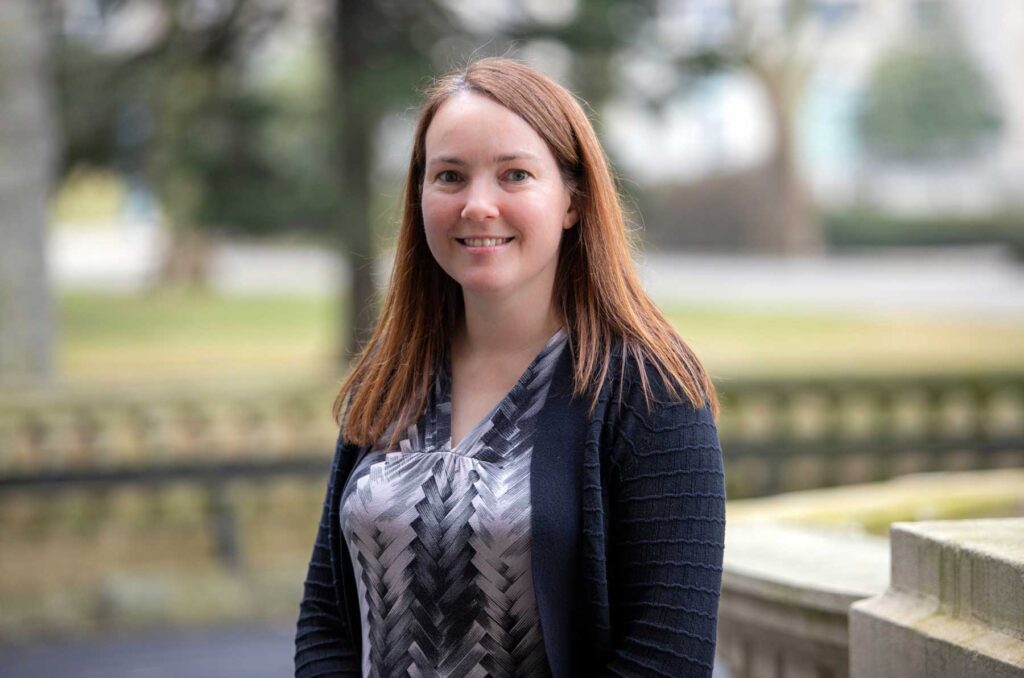Immaculata News
Faculty Profile: Dr. Kelly Orlando

Students in Kelly Orlando, Ph.D.’s biology classes are reaping the benefits of hands-on experiments that they can use in their everyday lives. Once you get past the long convoluted names, such as Saccharomyces cerevisiae, and learn it’s just another word for brewer’s yeast, students begin to see real-world applications for their research. Recently, Dr. Orlando’s students have explored what toothpaste is best for eliminating the most plaque; what material is better to create pipes to prevent biofilm formation; and studying how members of a gene family evolved in yeast.
While studying pharmacology in graduate school at the University of Pennsylvania’s School of Medicine, she gained an understanding of physiology and how drugs work in the body. She often finds herself watching TV commercials touting the newest drugs and pieces together why the side effects develop. She finds it beneficial to know how a popular drug can cause cancer, bring about depression or inhibit a person’s immune system. Dr. Orlando strives to make her course material relatable for the students too. She asks students to explore why Benadryl makes a person sleepy while Claritin does not. She uses relatability to help the student retain the information.
When Dr. Orlando was in 9th grade, she participated in a field trip to Cold Spring Harbor Laboratory near her home on Long Island, NY. During their trip, the students extracted their DNA from their saliva. They enzymatically digested the DNA, used an agarose gel to separate the cut- up DNA by size, and gave the students a picture of the gel.
“It was just a bunch of bands, but I thought it was the coolest thing ever,” she says. “This is my DNA!” From that day forward, she was hooked.
She acknowledges that technology has changed the way scientists conduct research. As an undergraduate student at Villanova University in the late 90s, she performed microscopic imaging with a camera attached to the microscope eyepiece, and had to wait to finish a roll of film before she could send it off to be developed. By the time she completed her Ph.D. in 2005 at the University of Pennsylvania, she was using a digital camera that provided instantaneous results, but the available cameras were complex, expensive and required tricky computer software to run.
“Today, I take pictures on my phone,” she says, laughing. “I hold it up to the eye piece of the microscope and take the picture,” she adds.
As technology continues to advance, Dr. Orlando is intently studying the capability of the Anatomage Table, purchased through a grant from the Henry A. Quinn Charitable Foundation. The Anatomage Table is the world’s first, and only, virtual dissection table featuring the most advanced 3D anatomy visualization system. Students will virtually dissect a human cadaver in a lab, which will provide a much more realistic experience to students studying human anatomy and physiology as well as vertebrate structure and function (the table software also includes various animal species for comparative anatomy). For Dr. Orlando, the student experience is paramount.
Since arriving at Immaculata in 2012, Dr. Orlando finds the atmosphere at Immaculata fits her well. After conducting research at other institutions, she enjoys focusing on the teaching aspect of her job, which she deems most important.
“Immaculata is perfect for me, I can focus on the undergraduate students and do research,” she says.